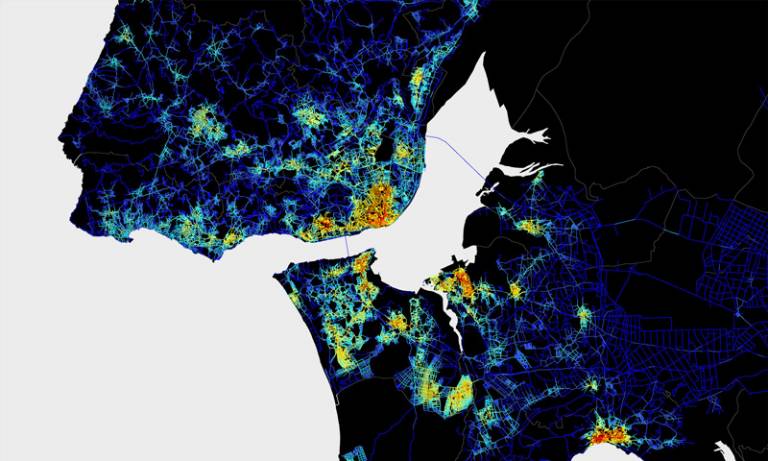11th International Space Syntax Symposium to be held in Lisbon, 3–7 July 2017
16 June 2017
The 11th International Space Syntax Symposium will take place in July 2017, hosted by the Instituto Superior Técnico at the University of Lisbon.

The International Space Syntax Symposium provides a forum for knowledge-sharing where space syntax scholars, practitioners, students and researchers from other related fields have the opportunity to discuss their pursuit of common research goals.
The 11th symposium will take place at the University of Lisbon from 3–7 July 2017. Professor Alan Penn, Dean of The Bartlett Faculty of the Built Environment, will be among the keynote speakers.
For details, visit the 11th International Space Syntax Symposium Lisbon website
About Space Syntax
As a field of research, space syntax is grounded on the pioneering work of Bill Hillier, Julienne Hanson and colleagues, developed in the early 1970s at The Bartlett School of Architecture, UCL.
Space syntax is commonly seen as a set of methods to analyse urban and architectural spaces of all kinds and sizes, and to foresee their functional outcomes. As a field of research it has become relevant to disciplines other than architecture or urban planning and design: it has found application in fields as diverse as sociology, psychology, archaeology, criminology, transport planning, economics, risk management, information technology and computer science.
Today, the space syntax research community is highly diverse, integrating members from all these fields, and from all over the world.
About the International Space Syntax Symposia
The International Space Syntax Symposia were founded in London in 1997. Since then, they have been held every two years in cities around world: London, Brasilia, Atlanta, Delft, Istanbul, Stockholm, Santiago and Seoul. They provide a forum for the space syntax research network to come together to present and discuss new work and to debate the future of their discipline.
The programme for the Lisbon symposium includes workshops, plenary sessions, garden sessions, themed paper sessions, focused sessions, poster sessions and technical visits.
 Close
Close

